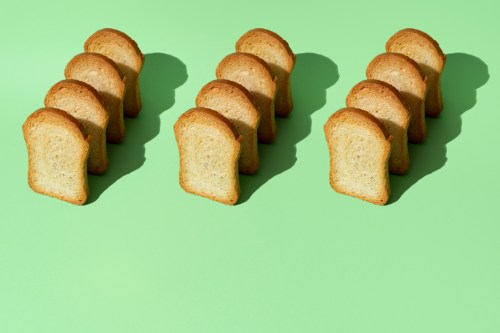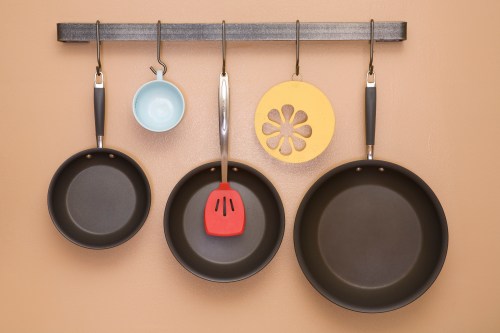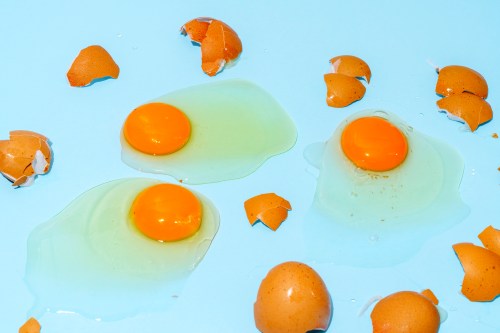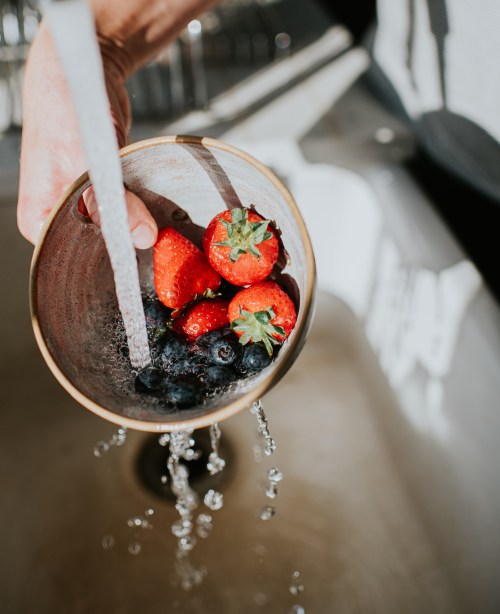There’s a Multi-State Recall on Bread for This Scary Reason
Check your pantry ASAP for these baked goods.

Upper Crust Bakery LP is recalling more than 800 cases of bread sold across multiple states. The recall is due to “glass fragments” found on top of several types of bread sold by the company, according to the Food and Drug Administration (FDA).
The recall was initially issued on April 12, but the FDA just gave it a Class II recall designation. Upper Crust Bakery LP specializes in frozen and par-baked breads, along with frozen pizza doughs. The company has not issued a press release about the recall at this time, and did not respond to Well+Good’s request for comment by deadline.
What is the bread recall?
The recall impacts 818 cases of different types of bread produced by Upper Crust Bakery LP. That includes 89 cases of 4-ounce Ancient Grains Hoagie Rolls, 699 cases of 18-ounce Multigrain Sourdough, and 30 cases of 20-ounce Whole Grain Multigrain. All were recalled due to concerns of glass being detected on top of the bread.
The hoagie rolls and multigrain sourdough have the lot number 90, while the whole grain multigrain bread has a lot number of 92. The breads were packaged in corrugated paper cartons and sold frozen.
The bread was distributed in these states, according to the FDA:
- California
- Connecticut
- Delaware
- Maryland
- Ohio
- Pennsylvania
What makes this recall dangerous?
This is a Class II recall, which is the FDA’s second most-severe category. Recalls in this category mean that “use of or exposure to a violative product may cause temporary or medically reversible adverse health consequences or where the probability of serious adverse health consequences is remote,” according to the FDA.
Glass in food is concerning for a slew of reasons, says Ellen Shumaker, PhD, director of outreach for the Safe Plates program at North Carolina State University. “Glass fragments can cause injury to the mouth and/or throat, as well as choking,” she says.
It can also cause internal injury, says Mark Conroy, MD, an emergency medicine physician at The Ohio State University Wexner Medical Center. "The biggest concern if you do accidentally ingest some glass shards is injury to your intestinal tract or esophagus when you're swallowing or digesting that bread," he explains. "That could cause perforation or internal bleeding."
It’s not clear if anyone has gotten sick or injured after eating the bread.
How does glass end up in bread?
There are a few ways this can happen, according to Shumaker. Glass can wind up on any food during the manufacturing process if a glass container or equipment that contains glass breaks, she says. This can also happen if glass makes its way undetected into an ingredient that eventually goes into the bread, Shumaker says.
Glass can shift over from a different area to end up on food, too, says Darin Detwiler, author of the book Food Safety: Past, Present, and Predictions and a professor at Northeastern University. “If glass breaks in one area and isn’t properly cleaned, small shards can be transferred by equipment, workers, or airflow,” he says.
Given that the glass was found on top of the bread, Shumaker says the contamination could even have happened from a glass light bulb shattering in a processing plant.
What to do if you have this bread at home
The FDA didn’t offer information on next steps for the recall. However, it’s safe to assume that you shouldn’t eat this bread if you have it at home. The FDA’s usual advice in this kind of recall is to throw the bread away or return it to the place where you purchased it.
It’s important to remember that eating glass can be serious. “If a person ate the recalled bread and thinks they ingested glass, they should see a healthcare professional,” Shumaker says. It’s also crucial to be on the lookout for symptoms like severe throat or stomach pain, vomiting blood, blood in your stool, and trouble swallowing or breathing—all of these suggest you’ve ingested glass and are having complications, according to Detwiler.
If you ate the recalled bread and you're having pain or bleeding, Conroy recommends that you visit an emergency department sooner rather than later. "Depending on the size of the shards, they may just let them pass," Conroy says. "But if the shards are large enough that they're stuck in your esophagus or stomach, there's a possibility that you might need a procedure to remove them."
If you have more questions or concerns about the recall, you can contact the bakery at 301-937-3450 or [email protected].










